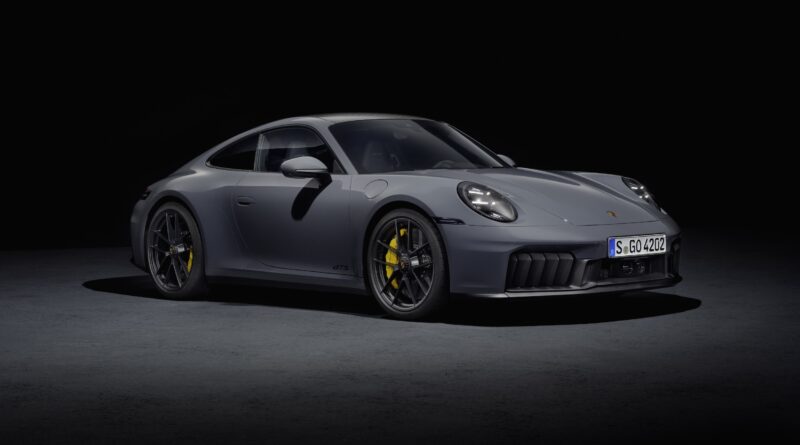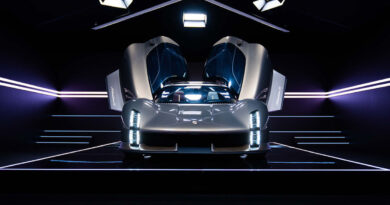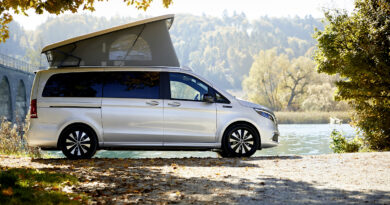Porsche 911 goes electric! T-Hybrid boosts heavily updated 992.2 generation supercar with innovative electric turbo and 40kW electric motor
Porsche’s iconic 911 is about to get a whole lot quicker thanks to electricity as part of a major model update that introduces revised styling, more tech and a hybrid system.
The first hybrid versions of the two-door supercar – on the Carrera GTS variants – have been confirmed ahead of their arrival in Australia early in 2025, paving the way for more electrified 911s down the track.
The new Porsche 911 T-Hybrid system comes as part of a major series two upgrade to the 992-generation car, known as 992.2.
READ MORE: 2025 Porsche 911 Hybrid shatters Nurburgring record
READ MORE: Porsche Mission X: A deep dive inside the first mid-motored EV with the guy who created it
READ MORE: Porsche Taycan GT: We warned you it was gonna be crazy … and it is!
READ MORE: 2024 Porsche Macan review: First drive of one of the most important new electric cars of the year
The 911 992.2 will in turn bring a new level of performance and efficiency to the model that sits at the heart of the Porsche brand, while also ushering in fresh hybrid technology that pushes the performance boundaries.
911 GTS gets the T-Hybrid treatment
The 911 will initially be offered as a hybrid in only the Carrera GTS model variants – some of the 20-odd iterations of the 911 that Porsche offers at any time – that bridge the gap between entry-level Carrera variants and track-focussed GT3 models.
But EV Central has been told by Porsche’s deputy chairman of the executive board for finance and IT, Lutz Meschke, that the company is also developing a 911 Turbo hybrid.
All three body styles of the 911 GTS – Coupe, Cabriolet and Targa – will get the T-Hybrid drivetrain.
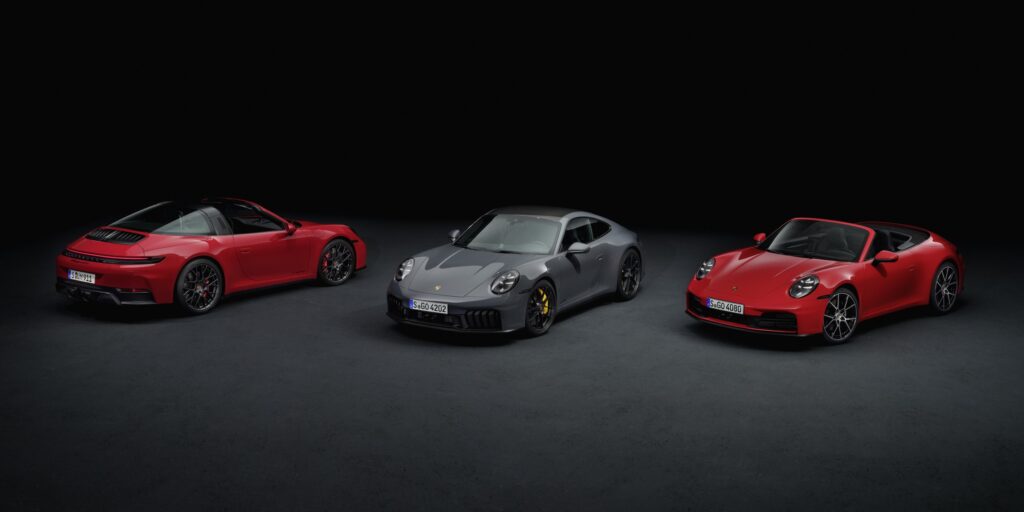
The 911 Carrera GTS Coupe and Carrera GTS Cabriolet will each be offered as rear-drive and all-wheel drive models, the latter being badged “4”.
The folding hard-top Targa will only be offered in all-wheel drive, to be known as Targa 4 GTS.
The shift to hybrid propulsion in the 911 GTS has unsurprisingly seen prices increase.
That said, there’s also more go-fast hardware, including rear-wheel steering and Porsche Dynamic Chassis Control (PDCC) anti-roll stabilisation system that taps into the high-voltage system of the hybrid.
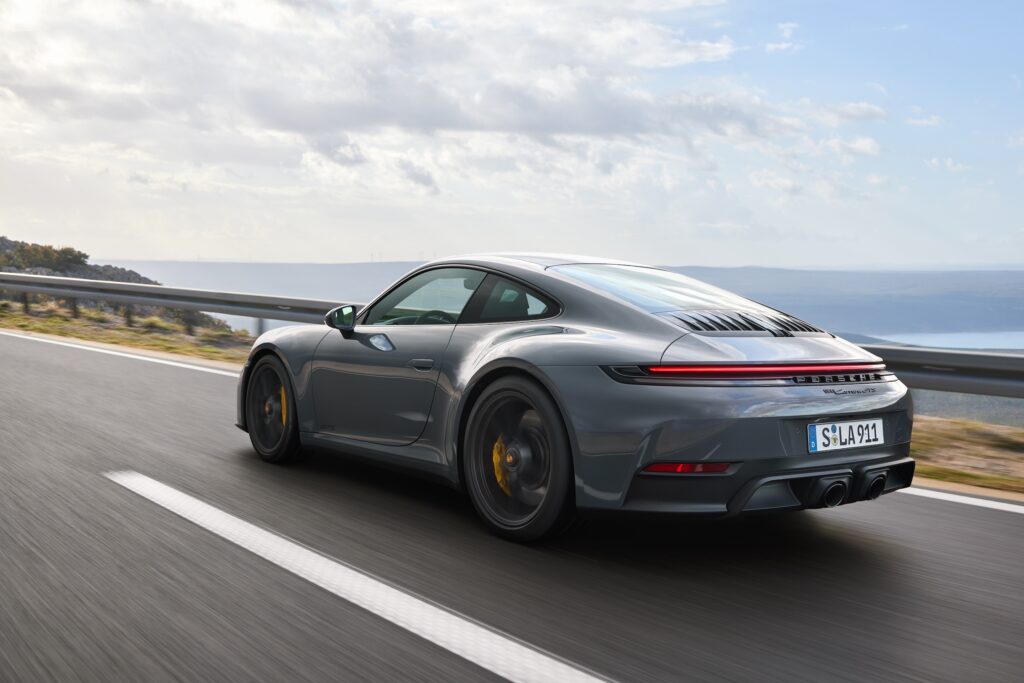
Prices are up almost 8 per cent across the GTS line-up (see below).
There are also significant styling updates to the 911, including to the front and rear bumpers; the GTS also gets active aerodynamics on either side of the front bumper, able to adjust the apertures depending on cooling requirements.
Porsche 911 GTS hybrid prices
992.1 prices 992.2 prices Change
Porsche 911 Carrera GTS Coupé $353,700 $381,200 +7.8%
Porsche 911 Carrera 4 GTS Coupé $373,000 $401,300 +7.6%
Porsche 911 Carrera GTS Cabriolet $386,900 $417,400 +7.9%
Porsche 911 Carrera 4 GTS Cabriolet $406,600 $437,900 +7.7%
Porsche 911 Targa 4 GTS $406,600 $437,900 +7.7%
Prices exclusive of on-road costs
Hybrid, the Porsche way
In true Porsche style, the new hybrid tech is different to anything on the market.
The so-called T-Hybrid system is paired with a new generation 3.6-litre horizontally-opposed six-cylinder engine as part of the 992.2 update.
The new boxer engine makes 357kW and 570Nm – more than the 353kW/570Nm of the 3.0-litre twin-turbo engine it replaces – and pairs it with an electric motor making 40kW/150Nm.
The main e-motor is integrated into a revised eight-speed PDK auto transmission.
Combined, the two power sources create 398kW and 610Nm.
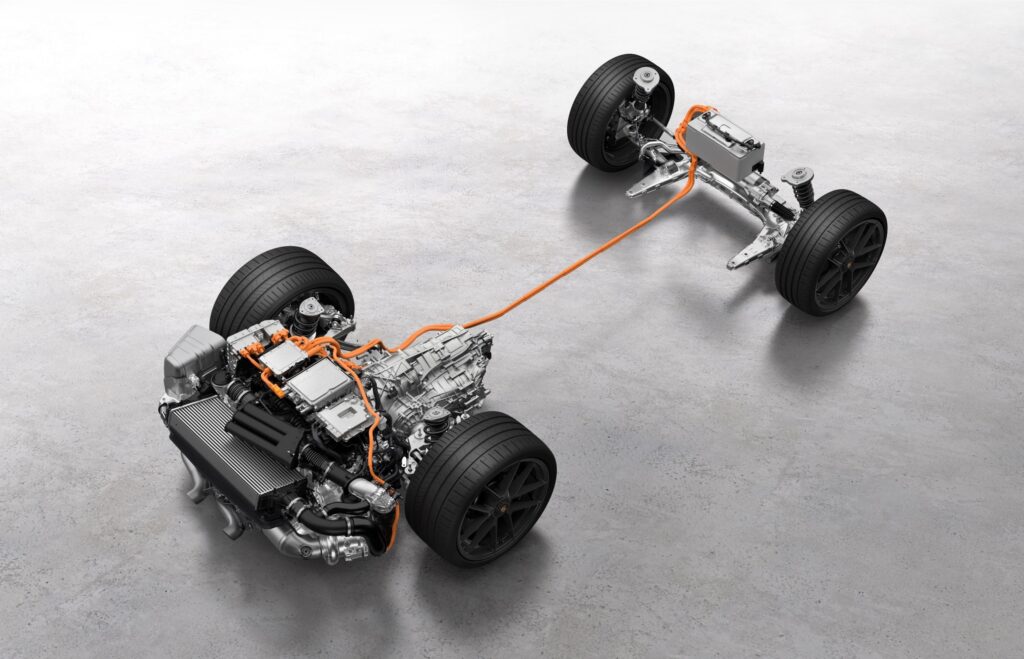
Porsche says that can blast the 911 GTS to 100km/h in as little as 3.0 seconds, marking a 0.4-second improvement over the outgoing model.
That’s a huge jump in the land of the 911, which usually inches performance up slightly with each model update in order to allow room for models above – and to allow for incremental improvements in future. By way of comparison, the new 911 Carrera as part of the 992.2 update gets just 7kW more power for a 0-100km/h time that improved by 0.1 seconds.
The big boost in the T-Hybrid also brings the 911 GTS tantalisingly close to the 911 Turbo that hits the 100km/h mark in 2.8 seconds.
But, of course, that 911 Turbo is also set to get the hybrid treatment (Porsche is also readying a 911 Turbo GT, which is expected to replace the Turbo S at the top of the 911 performance tree).
Innovative electric turbo at the heart of 911 hybrid
The 911 T-Hybrid does without traditional turbochargers with an innovative single electric turbocharger set-up.
In what is believed to be a world first, that electric turbocharger can even act as a generator, able to produce up to 11kW of electricity to feed back into the 1.9kWh battery at the heart of the hybrid system.
Instead of releasing turbo boost pressure to the atmosphere, the electric turbocharger can utilise it to create electricity. Essentially it harnesses the energy from the compressed air and uses a generator to turn it into electricity.
It also means the electric turbo does without a wastegate – the thing that makes the fluttering or whooshing sounds when lifting off the throttle of a turbo car – because all that pressure is used elsewhere.
It’s clever stuff and is indicative of the efforts Porsche has gone to in creating its first hybrid system for the 911.
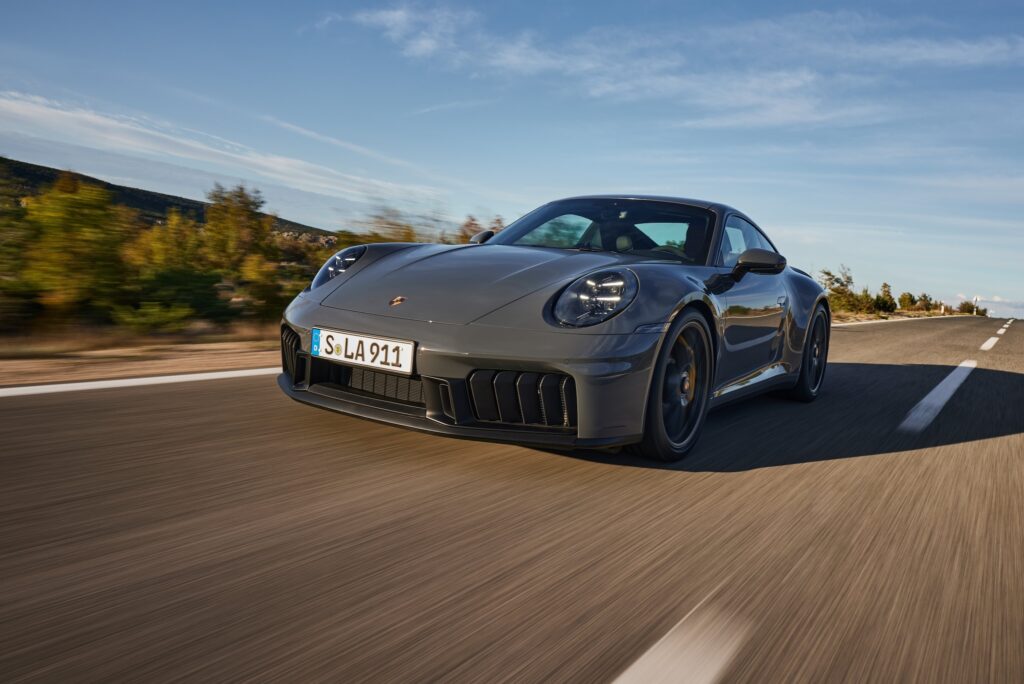
While hybrids aren’t anything new to Porsche – it has long offered hybrid versions of the Cayenne and Panamera – the previous petrol-electric systems were developed in conjunction with parent company Volkswagen.
But just as the 911 gets a unique engine not used anywhere else in the Volkswagen Group, it appears to have had a hybrid system development exclusively for the 911.
That’s perhaps no surprise given the importance of the model.
While the 911 only makes up about 16 per cent of Porsche sales – the Macan and Cayenne SUVs are the two top selling Porsches – it is the heartbeat of the company and the car that provides the inspiration for more mainstream models.
Tech infusion in cabin of 911 992.2
The 992.2 generation of the 911 also gets big changes in the cabin.
For the first time there is no analogue tachometer, with Porsche instead reverting to a fully digital instrument cluster, as it has in the Taycan and upcoming Macan EV.
The 12.6-inch curved display allows the driver to choose between seven different views, one of which mimics the traditional five circular gauges of a 911.
There’s also a 10.9-inch central infotainment screen with changes to how the drive modes and driver assistance systems are customised.
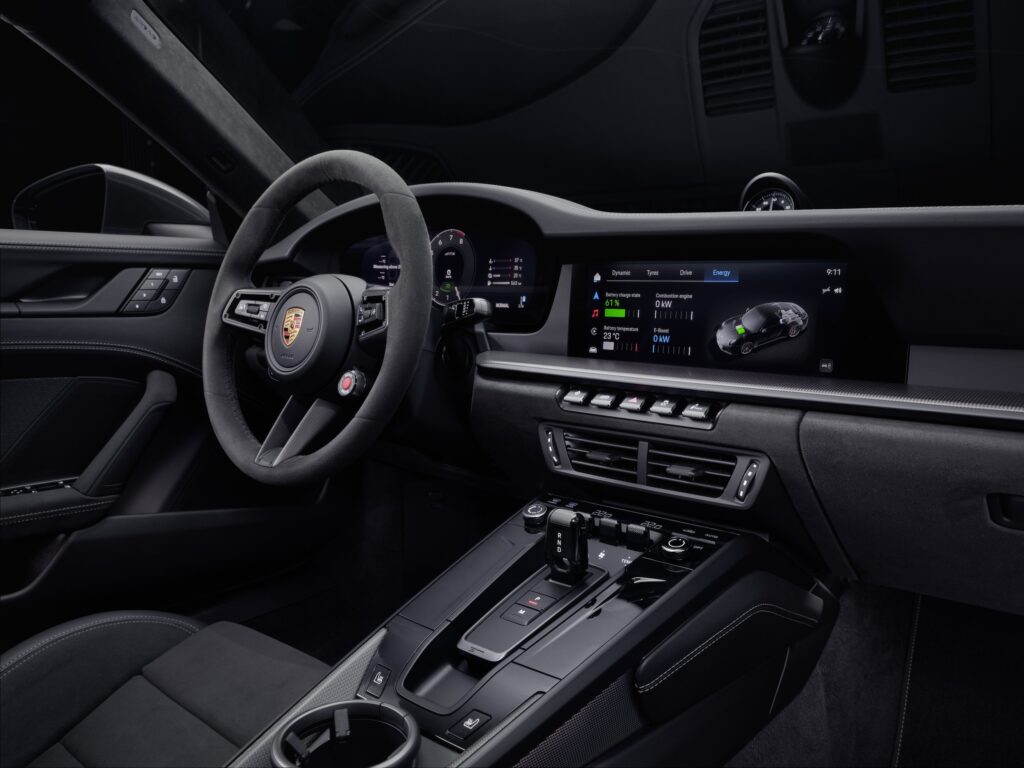
The 911 also gets push button start for the first time; previously there was a fixed key-like system that need to be turned to fire the engine.
The air-conditioning unit in the 911 T-Hybrid is also a new electrical system rather that running directly off the engine. That allows it to run when the engine isn’t operating and will also likely bring efficiency improvements.
The most fuel-efficient Porsche 911 yet?
Expect the 911 T-Hybrid to use less fuel than the six-cylinder models that have been at the car’s heart since its inception in 1964.
Not that Porsche is saying how much more efficient just yet.
The company’s messaging for the 911 hybrid so far has all been around performance; clearly the addition of an electric motor is focussed on making the 911 faster, with a byproduct being that it can regenerate electricity, in turn improving overall efficiency.
Earlier this month Porsche released details of the 911 hybrid’s performance, saying it lapped the Nurburgring race track 8.7 seconds faster than its predecessor.
No 911 PHEV, no EV
There has also been rumours that Porsche would develop plug-in hybrid technology for the 911.
But that hasn’t happened, in part because of the additional weight of what would need to be a larger battery.
Porsche has been working on hybrid tech for the 911 for more than 15 years and weight has long been referenced as the biggest challenge of integrating hybrid tech into the 911.
But with tougher emissions regulations looming in most parts of the world clearly Porsche decided it was time to act.
Porsche hasn’t said how much heavier the hybrid versions are other than to say the T-Hybrid system is “lightweight and powerful”.
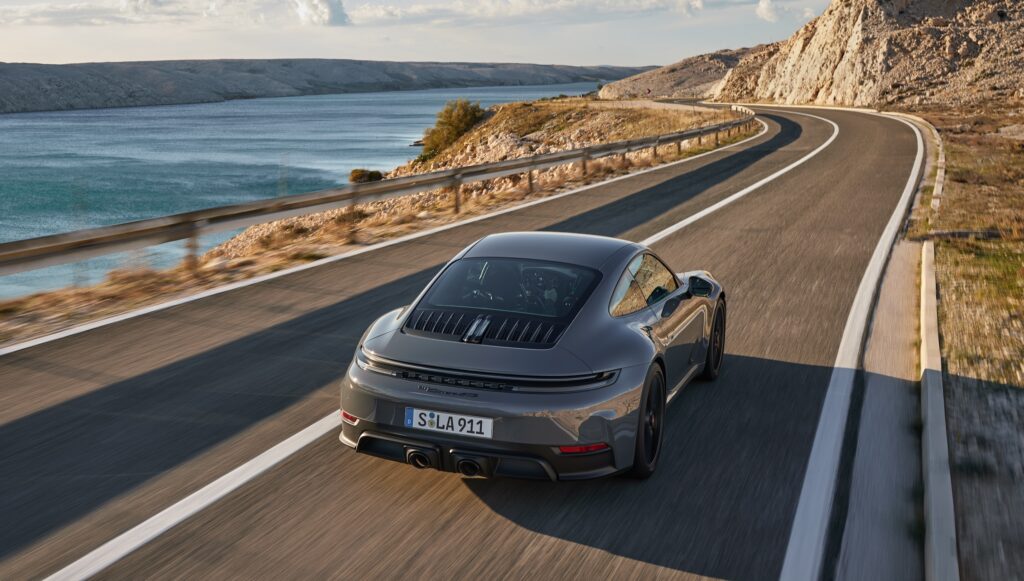
Porsche says the 1.9kWh battery “corresponds in size and weight to a conventional 12V starter battery”.
The company has also replaced the old school 12V battery with a lighter lithium-ion unit with the aim of reducing weight.
And, of course, two turbos have been removed and in their place a single electric turbo (with its own electric motor) as well as the larger 40kW/150Nm electric motor that drives the wheels.
So it’s fair to assume there will be a small weight penalty.
Porsche 911 Turbo to get T-Hybrid treatment, GT2 possible
Porsche board member Lutz Meschke told EV Central that the 911 Turbo would also get the T-Hybrid treatment.
“GTS and Turbo a clear yes,” said Meschke when asked which 911 variants would get the hybrid treatment. “Hybrid (drivetrain) … it’s (being reserved for) the upper ones.”
But, as mentioned earlier, also expect a new range-topping 911 Turbo GT to sit above the hybrid-powered 911 Turbo.
Meschke hinted that could also use the hybrid system, while also saying that the T-Hybrid could flow further down the model range to the Carrera S.
“Maybe later then the more mainstream S models but it’s not decided yet,” he said, while also confirming the long-rumoured Turbo GT.
“Then we have the Turbo GT and so-on.”
That 911 Turbo (and Turbo GT) could get an adaptation of the T-Hybrid system to ensure it has a significant power boost over Carrera models.
And, of course, the hybrid treatment could make it all the way to the top of the 911 range.
Porsche is understood to be readying a GT2 iteration of the 992.2. That would use turbos and sit above the legendary GT3, picking up its track-focussed dynamics but with even more thrust.
And it appears the hybrid treatment is one option for the GT2, which is typically a shortlived model line built in limited numbers.
Earlier this year we asked Porsche’s global CEO Olive Blume about a 992-generation GT2.
While smiling he answered: “we think about other editions in future”.

